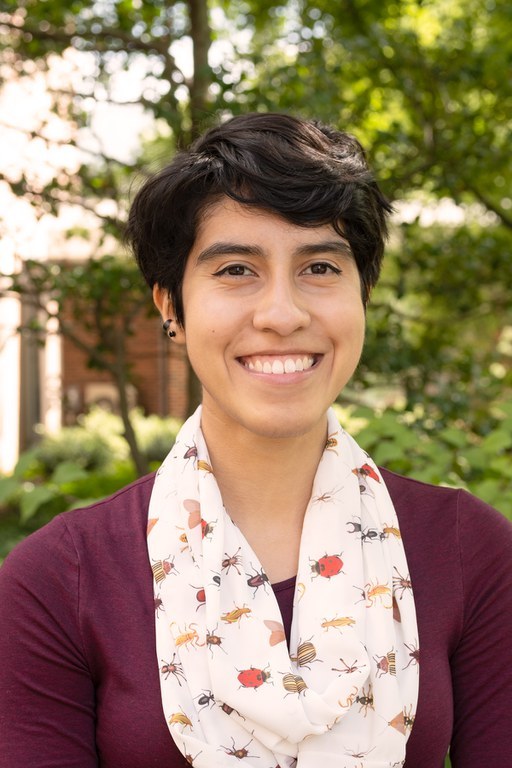This is the eleventh short news article written by students, during the professional development class of Spring 2024, about each other's research.

Valeria Lee
Student Spotlight: Valeria Lee
By Adegboyega Fajemisin
One of the goals of veterinary entomology, researchers explore arthropod ecology and behavior and find innovative solutions to pest-related problems. Valeria Lee, a graduate student in Dr. Erika Machtinger’s Veterinary Entomology Laboratory at Penn State, is making strides in the battle against bed bugs in poultry farms. Armed with a passion for entomology that dates to her childhood and a strong commitment to helping farmers, Lee’s research aims to develop cost-effective monitoring tools for managing bed bugs in poultry farms.
Bed bugs are oval-shaped, wingless insects that feed on blood. Their primary hosts are humans, but they may also feed on mammals and chickens when given the opportunity. These pests pose unique challenges in poultry environments, where traditional pest control methods such as sticky traps are not effective. Moreover, many of these bed bug populations are resistant to common pesticides. Poultry farmers must spend almost $100,000 per treatment to manage bed bugs.
According to Lee, “the financial burden on farmers and adverse effects on chicken health such as anemia and excessive feather loss has driven me to find a novel, cost-effective solution for monitoring and controlling bed bug infestations in poultry farms.”
In her project, Lee will develop a novel monitoring device and an insecticide-treated fabric for the timely monitoring and deterrence of bed bugs in poultry farms. She hypothesizes that the monitoring device would inform the farmers about the population of bed bugs over time, and the insecticide-treated fabrics will control bed bug populations.
The monitoring device is designed to attract bed bugs seeking shelter, as bed bugs only feed for about 5-10 minutes a week and spend the rest of their time in hiding. This would allow poultry farmers to check the device to confirm if there is a bed bug infestation, as bed bugs are typically not noticed until they reach a high-level infestation and are challenging to manage. In a future project, the aim would be to modify the monitoring device to turn it into a low-cost, effective bed bug trap for poultry facilities, as the high levels of debris from feathers and dust make other traps designed for hotels and apartments largely ineffective.
The insecticide fabric will be treated with two applications: RaVap (an insecticide safe for poultry) and entomopathogenic fungi Beauveria bassiana (to provide an option for organic farmers). Lee will conduct a biotoxicity assay to assess the toxicity of the insecticide-treated fabric and then examine its effectiveness in killing bed bugs.
Lee’s research is crucial for bed bug management in poultry farms, providing farmers with cost-effective monitoring and insecticide-treated fabrics through careful experimentation and innovative thinking. The benefits extend to the farmers, workers, and their feathered flocks.
Valeria Lee is a PhD student in the Department of Entomology. She is advised by Dr. Erika Machtinger. This project is funded by The Pennsylvania Department of Agriculture through the Center for Poultry and Livestock Excellence and The Pennsylvania Poultry Industry Research Check-Off program.

